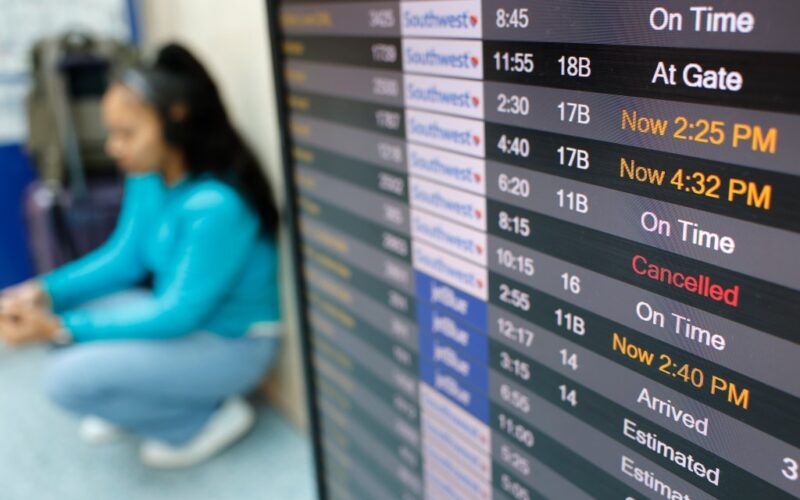The federal government slowly started to reopen Thursday but things remain far from normal after President Trump signed a Republican government funding bill that narrowly passed both houses of Congress to end the longest shutdown in U.S. history.
Air travel remained snarled with hundreds more flights canceled and delayed, but experts said things would slowly return to normal as the busy Thanksgiving holiday approaches.
Furloughed federal workers were expected to return to work in coming days and receive back pay from missed paychecks, along with essential workers like air traffic controllers and airport security screeners, who were forced to work without pay during the record 43-day shutdown.
Millions of low-income recipients of Supplemental Nutrition Assistance Program (SNAP) benefits, some of whom received partial or no payments for November, are expected to receive full payments in coming days.
The spending bill did not include any provision to extend tax credits for Obamacare health insurance premiums, a key demand made by Democrats that originally sparked the shutdown on Oct. 1. That means more than 20 million Americans still face sharply higher premiums as the year-end open enrollment period is in full swing.
Trump, who is burdened by low approval ratings, blamed Democrats for the shutdown, while opinion polls say most Americans point the finger at him and his GOP allies for refusing to work with the opposition party.
“I just want to tell the American people, you should not forget this,” Trump said Wednesday night at the White House. “When we come up to midterms and other things, don’t forget what they’ve done to our country.”
The signing ceremony with Republican lawmakers came just hours after the House passed the GOP measure on a mostly party-line vote of 222-209, with a handful of moderate Democrats including Long Island Rep. Tom Suozzi crossing the aisle to back the measure.
The Senate passed the measure Monday after a handful of Democrats effectively caved to Republican demands.
Democratic leaders vowed to keep fighting for an extension of the Obamacare subsidies with a vote expected in the Senate in December.
House lawmakers hope to force House Speaker Mike Johnson to permit a vote, which he has so far refused to do.
“This fight is not over,” said Rep. Hakeem Jeffries (D-New York), the minority leader. “We’re just getting started.”
The compromise funds three annual spending bills and extends the rest of government funding through the end of January, when another shutdown fight could take place.
The bill includes a reversal of the firing of federal workers by the Trump administration since the shutdown began. It also protects federal workers against further layoffs through January and guarantees they are paid once the shutdown is over.
It doesn’t force Trump to restore funding for infrastructure plans in Democratic states like the new Hudson River rail tunnel that the president vowed to cancel to punish Sen. Chuck Schumer (D-New York).
The bill for the U.S. Department of Agriculture means food assistance programs like SNAP and aid for Women, Infants and Children (WIC) will be funded without threat of interruption through the rest of the budget year that runs through September 2026.
The biggest point of partisan dispute remains the expiring enhanced tax credit that makes health insurance more affordable through marketplaces for the Affordable Care Act, the official name of Obamacare.
Some Republicans say they want to negotiate a compromise with Democrats. GOP leaders mostly oppose the credits and have fought for more than a decade to undermine or even repeal the ACA.
“All they have done is try to eliminate access to health care in our country. The country is catching on to them,” said Rep. Nancy Pelosi, the Democratic elder stateswoman who recently announced her retirement.
Without the tax credits, average premiums could more than double for millions of Americans. More than 2 million people would lose health insurance coverage altogether next year, the Congressional Budget Office projected.








